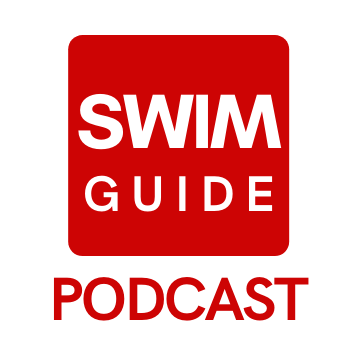Welcome to this week’s edition of the newsletter. Winter is right around the corner in the Northern hemisphere, and the months to come will be cold and dark for many. My hope is that That Triathlon Show and this newsletter can help a lot of people keep their motivation up during this period, so you can hit the ground running come spring. Latest on That Triathlon Show This week’s episode on the podcast is an interview with coach Rick Velati of British Triathlon. Rick currently works as a coach with the World Class Programme at British Triathlon, but prior to that he spent almost 12 years as the head coach of the Talent program, so our main topic in the interview is developing youth and junior athletes and long-term athlete development. Some of my main takeaways from the interview with Rick included: Coaching the person first, athlete second. A concept I wholeheartedly agree with and try to live up to in my own coaching as well. In order to see really good performance improvements in the sport, I believe that the person has to happy and healthy, and just generally be “in a good place”. As a coach, while you can’t make changes for the athlete, having an awareness of these aspects of the athlete’s life and discussing it with them is therefore an important prerequisite for optimal athletic development. “Talent” isn’t just about being fast and winning lots of races as a youth or junior athlete. For athletes, parents, and coaches, it is important to recognise that a key aspect of talent is how the athlete approaches the work and challenges ahead of them. Their ability to self-reflect, their desire, and their motivational drivers. Sure, to make it to a world class level in triathlon, you need physical talent, but physical talent alone is not enough. The talent of perseverence or mental fortitude can be what separates those athletes that go from promising juniors to compete at a world class level to their equally successful peers at a junior level who don’t end up having a career in the sport as senior athletes. Load management in youth and junior athletes is important, and a big part of that is identifying other life stressors, including things like insufficient sleep. Another key point is really managing the easy sessions well, and make sure they are easy enough. You don’t always have control of what kids are doing in their quality sessions, like group track sessions or chaingangs, so you’re reacting to what they did rather than prescribing what they will do. Educating around and making sure that they can keep those easy sessions really easy is one of the best things you can do to balance out the overall intensity. I hope you enjoy the episode – email me your feedback once you’ve listened to it! Long-term athlete development with Rick Velati | EP#312 Next week’s guest will be Stephan van der Zwaard, PhD. We will discuss skeletal muscle determinants of endurance performance, which is a topic that Stephan has published a fantastic review paper on. Stephan also works in the realms of data science and applied sports science. We will discuss both of those topics as well, but most importantly, from the applied sports science perspective we will discuss how the findings about skeletal muscle determinants of endurance performance should or could influence your training programming. Even if you have limited interest in the physiology aspects of our interview, it will be well worth it to tune in for those practical tips. Scientific Triathlon Coaching If you are thinking about getting a triathlon coach to take your performance to the next level, don’t forget to check out all about our coaching on the our coaching-page, or reach out directly to me to learn more. Our coaching team consists of five coaches with great expertise, proven track records, and dedication to the craft. In 2021, our athletes achieved countless PBs, wins and podiums, participated in and qualified for World Championship events, and completed their first triathlon or first triathlon of a specific distance. We cater to athletes of all abilities, and also coach professionals and aspiring professionals. Currently, we have 8-9 coaching slots available. Be in touch if you’re interested in getting one of these slots for yourself. A lot of athletes are asking whether I personally have slots available for coaching. I do have 1-2 slots, but I reserve them for professional or aspiring professional athletes at this point in time. If you fall into one of these categories and are interested in working with me, please reach out. Resource of the week For this week’s resource of the week, I’ll pick two YoutuYoutube channels that are great for anybody interested in best practices at the highest level of triathlon: Kristian Blummenfelt and Mikal Iden. While the content is not always super consistent and definitely not highly produced, I really enjoy the rawness of it, but most of all, the transparency in what athletes like Kristian and Gustav Iden are doing to be at the top of the sport across the board from Superleague to Ironman. Check out Kristian’s latest video for example, where he did a long uphill run in Sierra Nevada in preparation for Ironman Cozumel. We get to learn about his run power numbers and lactate values. The transparency around training and fitness is something I think these channels do better than most other pro triathletes’ channels, so it’s worth having a look for that reason alone. And another reason is simply to marvel at what the human body is capable of both in terms of training and racing. |
Workout of the week The workout for this week is actually a test, or rather, an assessment. A lot of athletes are used to doing bike testing based on e.g. a 20-minute time trial, or a ramp test. The problem with these types of tests is that they only give you a single piece of information. The former gives you your 20-minute mean max power, nothing more, nothing less. And the latter gives you your Max Aerobic Power. Don’t get me wrong, both can be useful, but they are definitely inferior to tests that can elucidate some more information about your physiology and power profile, like a Critical Power test. A critical power test based on two or three time trials between two to 15 minutes in duration gives you two to three mean max powers, you can calculate your Critical Power from it, which is a physiologically important data point, and you can calculate your W’ (work capacity above Critical Power). For simplicity, I often tend to give athletes just two time trials to do, and usually these would be done on separate days. I tend to gravitate towards using a 3-minute and a 12-minute Time Trial. If you do both of these tests on the same day, you should take at least 30 minutes of super easy riding to recover between the tests, but I do think you will get better results by doing them on separate days. Here’s how I prescribe these tests: BIKE – Critical Power test -These tests are best done on a gentle climb safe from traffic, or on the indoor trainer if you cannot guarantee safety from traffic, or if you don’t have the right terrain, weather etc. for doing an uninterrupted test. -Do the Time Trials in the aerobars if training for non-drafting events Warm-up: -10 min easy, RPE 2-3 -5 min ramp up from RPE 5 to RPE 9. Increase RPE and power in even increments every minute (RPE 5, 6, 7, 8, 9). -5 min easy RPE 2-3, ending in an 8-second all out seated sprint. -8-10 min super easy RPE 1-2 Main set: -3 min (day 1) OR 12 min (day 2) MAXIMAL EFFORT! (hold the highest wattage possible, ie. try to pace evenly). -5′-10’ easy warm down After having completed both tests, you simply plug your results into a calculator like this one, and you’ll get your Critical Power and W’ as the output. You can learn more about Critical Power in my interview with Dr. Mark Burnley in episode 257 of That Triathlon Show. That’s it for this week. Keep training smart, and keep loving triathlon! Mikael Eriksson Triathlon & Endurance Performance Coach, Founder of Scientific Triathlon |
| Big thanks to our sponsors! When you shop with our sponsors you contribute to the sustainability of That Triathlon Show. |
 Zen8 Zen8The ZEN8 Indoor Swim Trainer is a one of a kind swim bench for time-crunched triathletes looking to improve their swim technique, power and propulsion, and consistency of swim training. It is very affordable, about the price of a pair of running shoes, and Zen8 offer free shipping in the US and the UK. Best of all, you can try it risk-free. If you don’t love it after two weeks, send it back and get a full refund. Get 20% off your order at zen8swimtrainer.com/tts. |
 Precision Hydration Precision HydrationWant to optimise your performance in hot or humid conditions, avoid cramping, and make sure your hydration is on point? Take PH’s free online Sweat Test to get personalised hydration strategy. Also use the Quick Carb Calculator to get fueling recommendations, and book a free one-on-one consultation to refine your hydration and fueling strategy. Use the promo code THATTRIATHLONSHOW15 to get 15% off your first order of PH electrolytes or the Precision Fuel range. |
| Follow us on social media |
| If you are interested in taking your triathlon (or general endurance sports) performance to the next level, consider getting a Scientific Triathlon coach. Getting coached by a knowledgeable and dedicated coach is without a doubt the best way to maximise your performance. You can also consider our ready-made or customised training plans as a great option if you don’t feel ready to get a coach yet, but still want to take some big and important steps towards improving your training and performance. Check out our coaching, customised training plans, and ready-made training plans. |
Uncategorized
